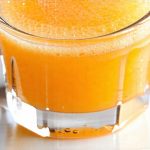The modern world presents an unprecedented assault on our digestive systems. From processed foods laden with artificial additives to chronic stress and widespread antibiotic use, our gut flora – the vast community of microorganisms residing in our intestines – is under constant pressure. This disruption, often termed dysbiosis, can lead to a cascade of health issues beyond just digestive discomfort, impacting immunity, mental wellbeing, and even chronic disease risk. Many “detox” trends focus on aggressive cleanses or restrictive diets that further harm this delicate ecosystem. True detoxification isn’t about harsh elimination; it’s about supporting the body’s natural processes for removing toxins while simultaneously nurturing a robust and resilient gut microbiome.
A holistic approach to digestive resilience acknowledges the interconnectedness of diet, lifestyle, and mental health. It prioritizes nourishing the body with whole foods, minimizing exposure to environmental toxins, managing stress effectively, and cultivating habits that support optimal digestion. This isn’t about quick fixes or deprivation; it’s a sustainable path towards long-term wellbeing rooted in understanding how our bodies are designed to function. The goal is not to eradicate all potential threats – an impossible task – but to strengthen the body’s inherent capacity to process and eliminate them efficiently, while fostering a thriving gut environment that acts as our first line of defense. Understanding daily rituals can be the start to supporting this resilience.
Dietary Foundations for Gut Health & Detoxification
Food is undeniably medicine, and what we choose to eat profoundly impacts both detoxification pathways and the health of our gut flora. A cornerstone of any natural detox strategy should be prioritizing whole, unprocessed foods rich in nutrients. This means focusing on a rainbow of phytonutrient-dense fruits and vegetables, lean proteins, healthy fats, and fiber-rich carbohydrates. Minimizing processed foods, sugar, artificial sweeteners, and excessive alcohol intake is equally critical, as these can fuel inflammation and disrupt gut balance. Specifically, certain foods actively support detoxification processes within the liver and intestines, enhancing the body’s natural cleansing abilities. Incorporating natural anti-inflammatory foods is a great place to begin.
Crucially, we must consider not just what we eat, but also how we digest it. Proper chewing is often overlooked, yet it’s essential for breaking down food into smaller particles, reducing the burden on the digestive system, and maximizing nutrient absorption. Eating in a relaxed state – free from stress or distractions – further optimizes digestion. Incorporating fermented foods like kefir, sauerkraut, kimchi, and kombucha can introduce beneficial bacteria to the gut, bolstering the microbiome’s diversity and resilience. These living foods contribute probiotics that aid in breaking down food, enhancing immunity, and even influencing mood.
Beyond specific foods, hydration is paramount for detoxification. Water helps flush out toxins through urine, sweat, and bowel movements. Aiming for at least eight glasses of filtered water daily supports optimal kidney function and prevents constipation, a common roadblock to effective detoxification. Furthermore, incorporating herbs and spices known for their digestive benefits – such as ginger, turmeric, peppermint, and fennel – can soothe the gut, reduce inflammation, and enhance nutrient absorption. Remember that individual tolerance varies; introducing these slowly is key. Natural remedies can be helpful here, but always consult with a healthcare professional.
Liver Support Through Nutrition
The liver is our primary detoxification organ, responsible for processing toxins from both internal sources (metabolism) and external exposures (environment). Supporting liver function is therefore central to any natural detox strategy. Certain foods are particularly beneficial in promoting healthy liver function and aiding its detoxification processes.
- Cruciferous vegetables like broccoli, cauliflower, Brussels sprouts, and kale contain compounds that support the liver’s detoxification enzymes.
- Beetroot is rich in betaine, a nutrient that helps protect and regenerate liver cells.
- Garlic and onions contain sulfur compounds that aid in detoxification pathways.
- Green tea contains antioxidants called catechins which can help protect the liver from damage.
Beyond specific foods, prioritizing adequate protein intake is essential for providing the building blocks needed for liver enzymes to function optimally. However, avoid excessive consumption of red meat, which places a greater burden on the liver. Furthermore, limiting alcohol and exposure to environmental toxins (pesticides, herbicides, pollutants) reduces the liver’s workload and allows it to focus on detoxification. Meal prep ideas can help with focusing on whole foods.
The Role of Fiber in Digestive Resilience
Fiber isn’t just about regularity; it’s a cornerstone of gut health and digestive resilience. There are two main types: soluble fiber, which dissolves in water and forms a gel-like substance (found in oats, beans, apples), and insoluble fiber, which adds bulk to stool and promotes regular bowel movements (found in whole grains, vegetables). Both types play vital roles in detoxification.
Soluble fiber helps bind to toxins in the gut, preventing their reabsorption into the bloodstream. Insoluble fiber promotes healthy elimination, removing waste products efficiently. A high-fiber diet also feeds beneficial bacteria in the gut, fostering a diverse and thriving microbiome. This microbial activity produces short-chain fatty acids (SCFAs) like butyrate, which have anti-inflammatory properties and strengthen the gut lining – essentially bolstering our internal barrier against toxins.
Gradually increasing fiber intake is crucial to avoid digestive discomfort. Start with small amounts and slowly increase over time, ensuring adequate hydration to prevent constipation. Aim for a diverse range of fiber sources to maximize benefits. Fermented fibers like inulin (found in onions, garlic, leeks) are particularly beneficial as they selectively feed bifidobacteria – key players in gut health.
Stress Management & Gut-Brain Connection
The intimate connection between the brain and the gut – known as the gut-brain axis – is often underestimated. Chronic stress significantly impacts digestive function and can disrupt the microbiome, leading to inflammation and reduced resilience. When we experience stress, our bodies release cortisol, a hormone that can alter gut motility, reduce stomach acid production, and compromise immune function. This creates an environment where harmful bacteria can thrive while beneficial bacteria are suppressed.
Managing stress is therefore integral to any natural detox strategy. Incorporating stress-reducing practices into daily life can have profound benefits for both digestive health and overall wellbeing. These may include:
- Mindfulness meditation
- Yoga or tai chi
- Deep breathing exercises
- Spending time in nature
- Engaging in hobbies and activities that bring joy
- Prioritizing sleep
Furthermore, cultivating a positive mindset and practicing self-compassion can help buffer against the negative effects of stress. Addressing underlying emotional issues through therapy or counseling may also be beneficial. The goal is to create a sense of calm and balance within the nervous system, allowing the digestive system to function optimally. Structuring meals around your body’s rhythms can also help with stress reduction. And don’t forget about soups and stews for comfort!
The key takeaway isn’t about eliminating toxins at all costs; it’s about empowering our bodies to naturally detoxify while fostering a resilient gut microbiome. By focusing on whole foods, mindful eating, stress management, and adequate hydration, we can create a foundation for long-term health and wellbeing. This approach prioritizes nourishing the body rather than punishing it, leading to sustainable results that go beyond superficial “detox” trends. Revisiting childhood favorites can also play a role in creating a positive relationship with food.


















